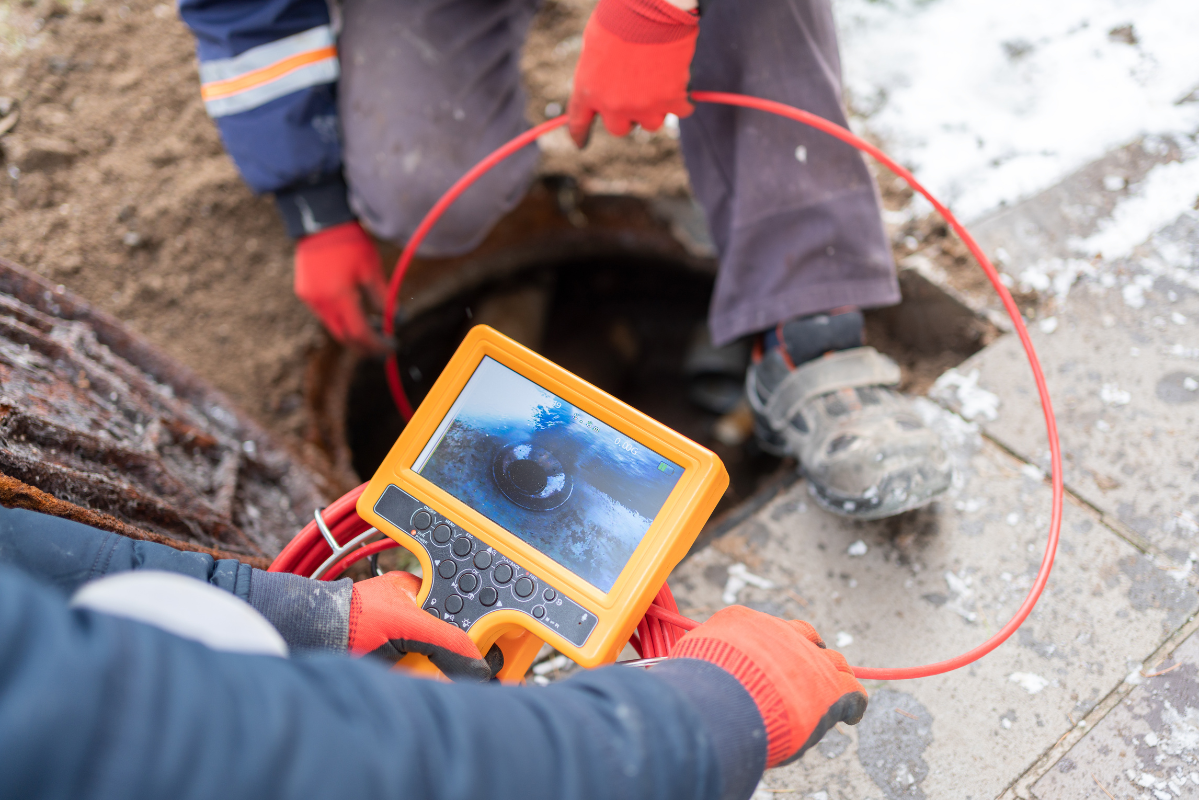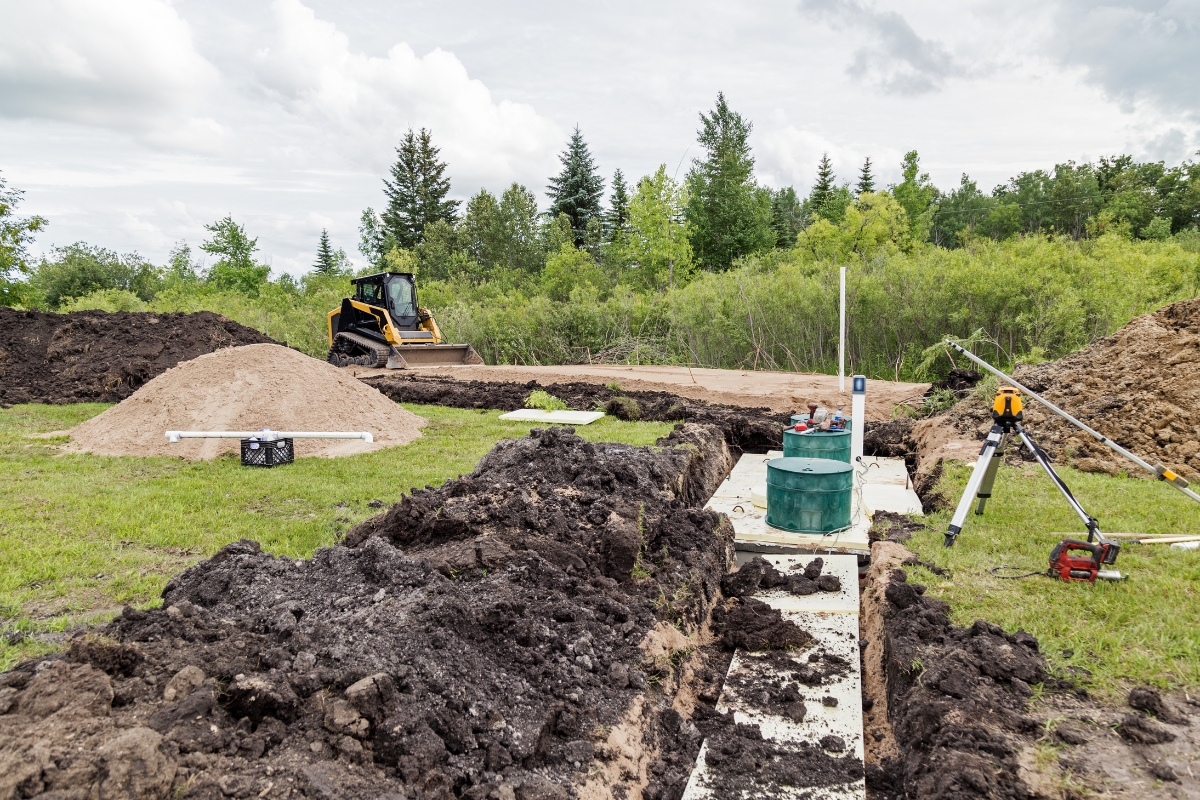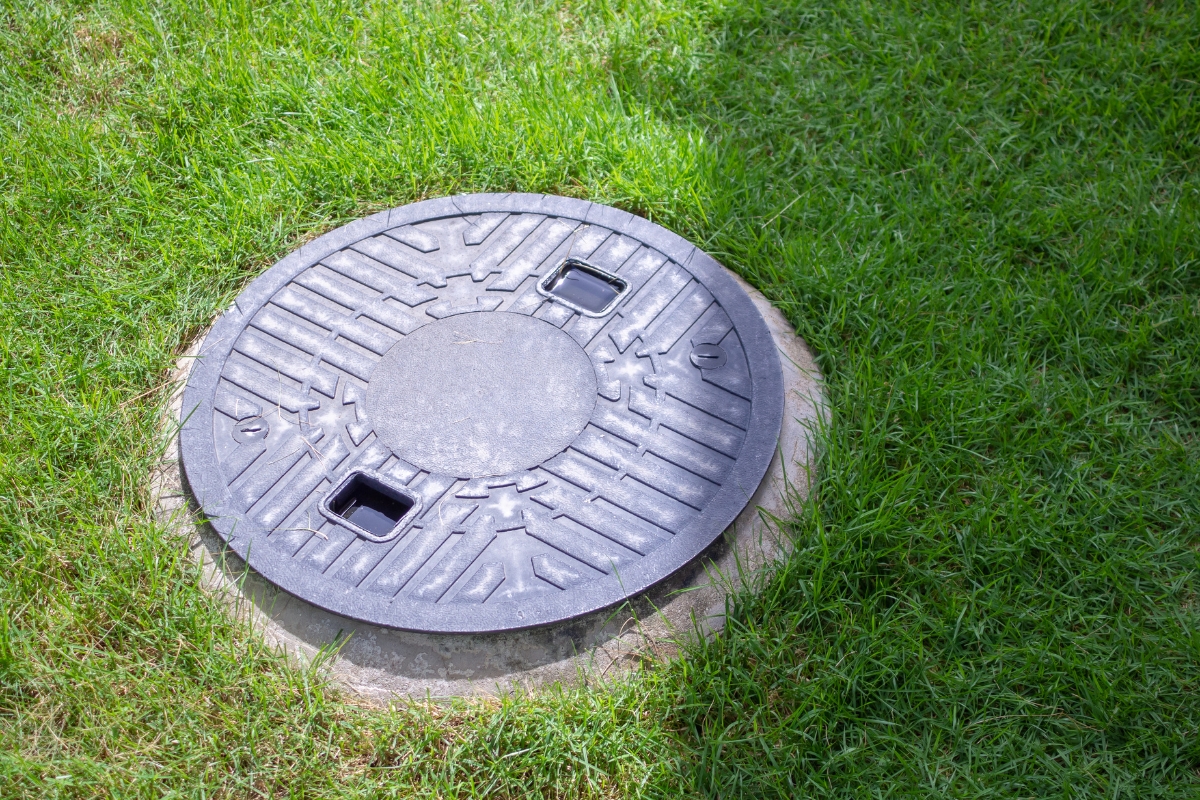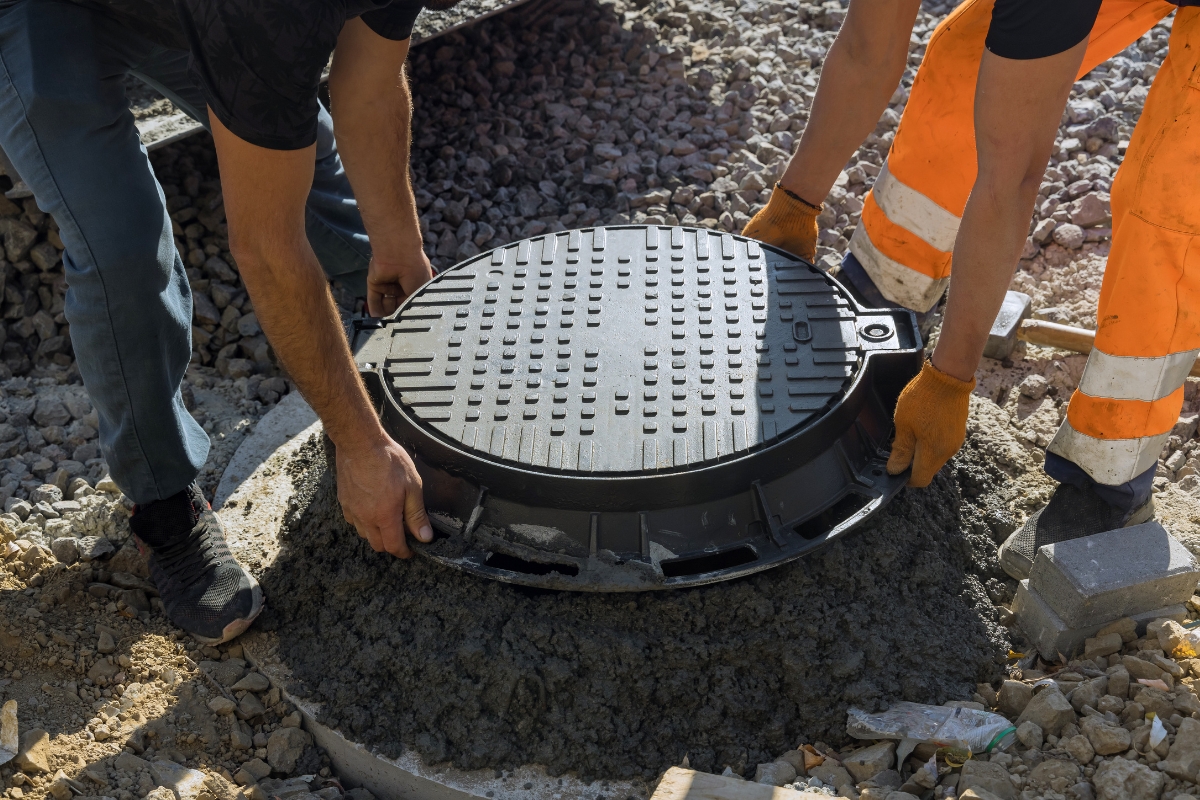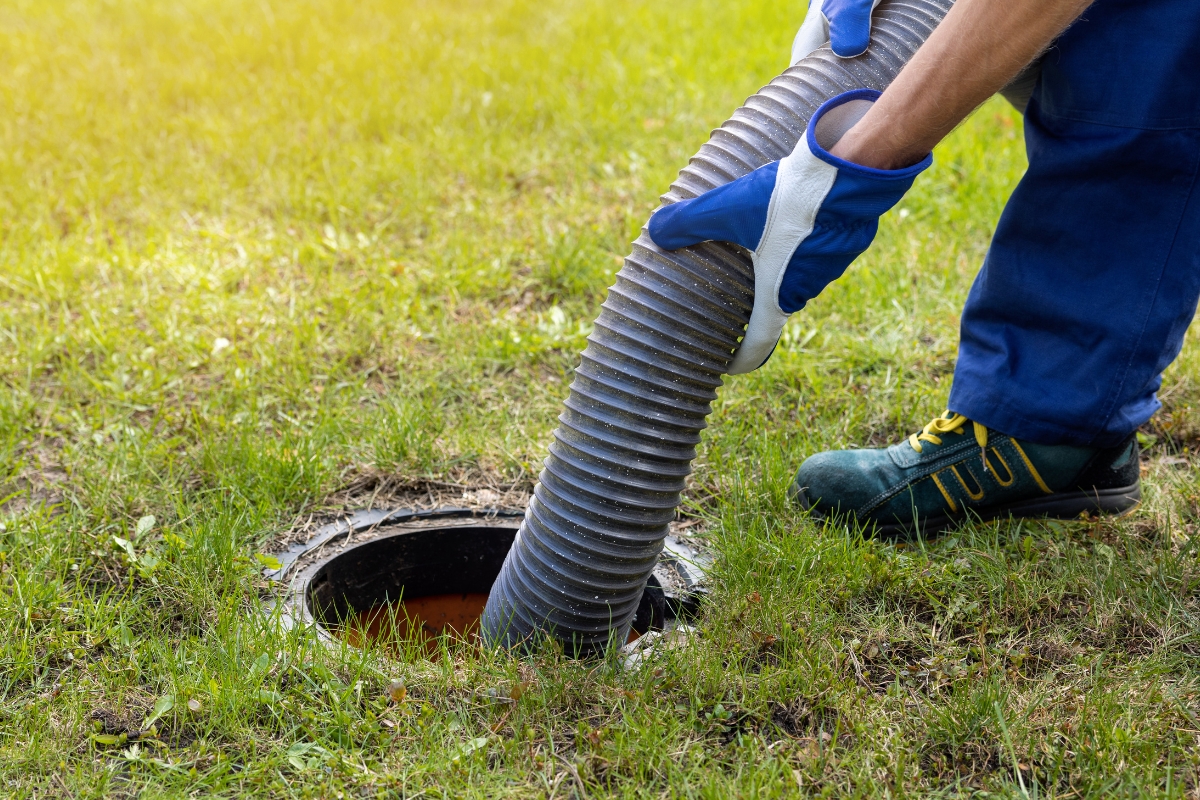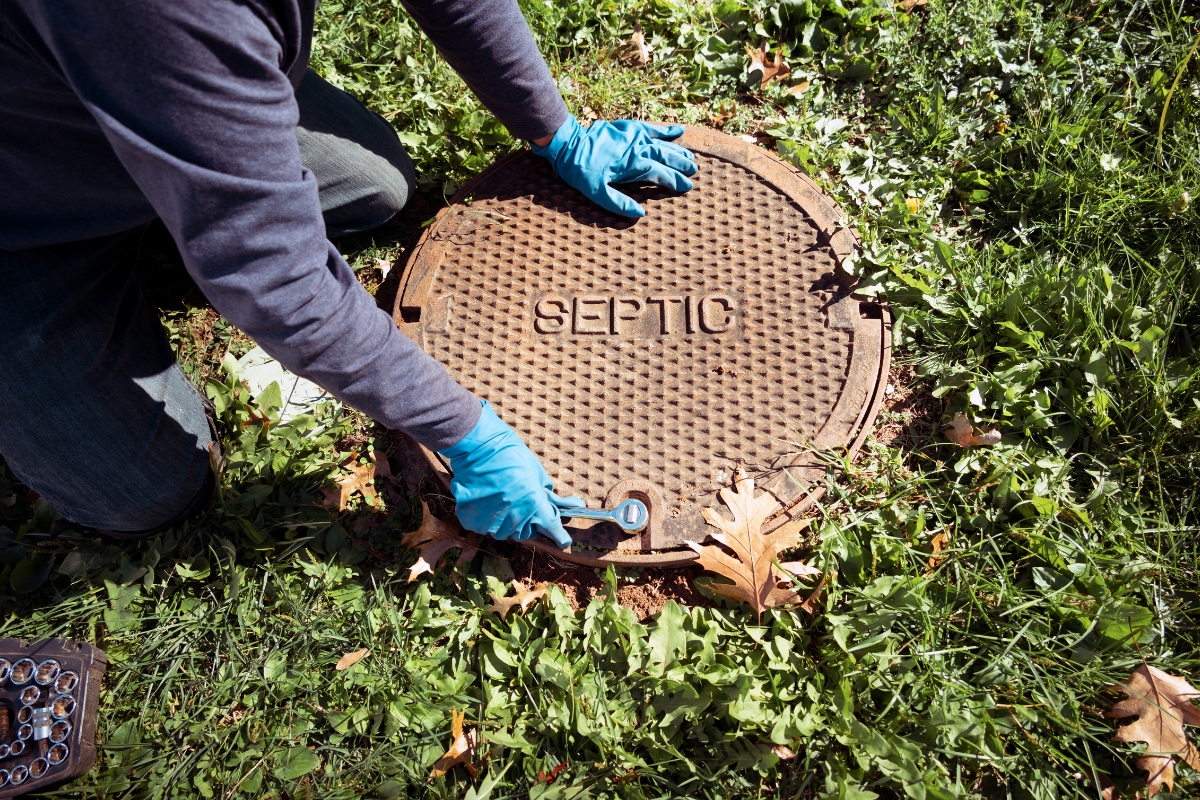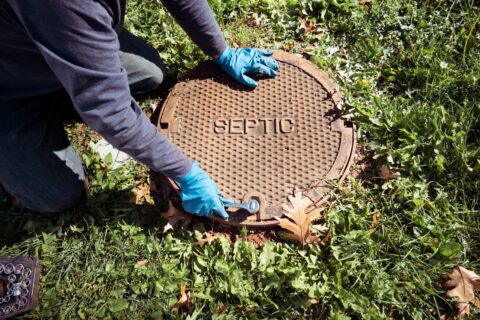Are you ready to dive into the world of plumbing systems? In the battle of the pipes, it’s time to explore the showdown between septic and sewer systems. These two giants of waste management offer distinct advantages and considerations for homeowners. So here, we will explore the pros and cons of each system, equipping you with the knowledge to make an informed choice regarding septic vs sewer systems.
Whether you’re building a new home or considering a change, understanding the differences between septic and sewer systems is crucial. So, get ready for an eye-opening journey that will empower you to make the right decision for your property. Let the showdown begin!
Flush Or Flow? Septic vs Sewer Systems Revealed!
Environmental Impact: How Septic And Sewer Systems Differ
Dive into the fascinating world of waste management as we explore the environmental impact of septic and sewer systems. Discover the contrasting ways in which these systems handle and affect the environment.
- Waste Treatment: In septic systems, waste is stored and treated on-site, with the effluent eventually seeping into the ground. Sewer systems, on the other hand, transport waste to centralized treatment plants for processing.
- Resource Consumption: Septic systems require less energy to operate since they rely on natural processes. In contrast, sewer systems demand significant energy for pumping and treating large volumes of wastewater.
- Water Quality: Sewer systems can potentially release untreated sewage during heavy rainfall or system malfunctions, endangering water sources. In comparison, well-maintained septic systems pose lower risks of contamination.
- Maintenance: Regular septic tank inspections and septic tank pumping are essential for septic systems to prevent leaks and maintain efficiency. Sewer systems are managed by municipalities, ensuring consistent maintenance and repair schedules.
- Long-Term Sustainability: While septic systems can be sustainable if properly maintained, sewer systems offer better scalability and long-term environmental benefits due to centralized treatment and monitoring.
Understanding the environmental implications of septic vs sewer systems is crucial. By evaluating their differences, we can make informed choices that minimize our ecological footprint and contribute to a healthier planet.
Cost Analysis: Comparing Upfront And Long-Term Expenses
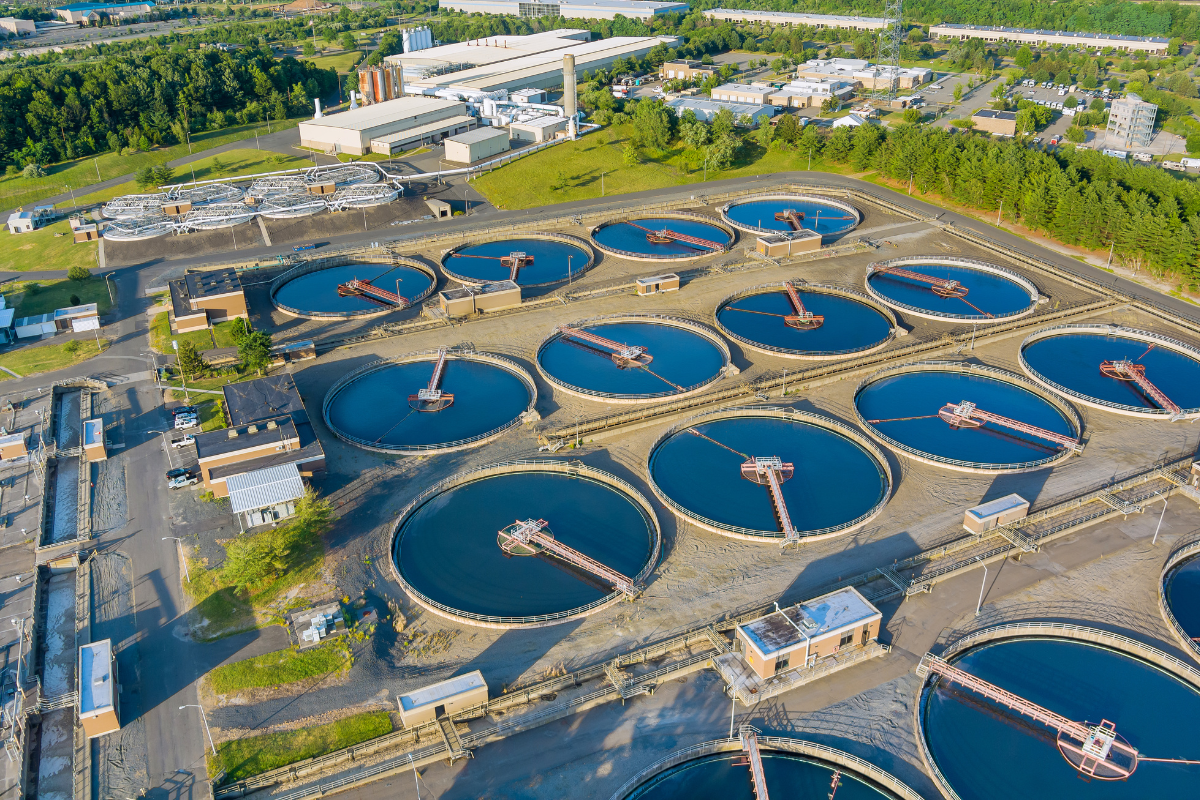
Join us as we delve into the realm of financial considerations and conduct a comprehensive cost analysis of septic vs sewer systems. Uncover the differences in upfront expenses and long-term financial implications.
Initial Installation Costs:
- Septic System: Requires purchasing the tank, drain field, and installation costs.
- Sewer System: Typically involves connection fees and labor costs for hooking up to the municipal sewer line.
Maintenance Expenses:
- Septic System: Regular pumping, inspections, and potential repairs.
- Sewer System: Monthly utility bills, occasional maintenance fees.
Repair and Replacement Costs:
- Septic System: Repairs can range from fixing drain field issues to replacing the entire system.
- Sewer System: Municipal responsibility for mainline repairs, homeowner responsibility for lateral lines.
Long-Term Financial Considerations:
- Septic System: Lower ongoing costs but higher potential for major repairs.
- Sewer System: Higher monthly bills but lower risk of unexpected repair expenses.
Environmental Impact:
- Septic System: Natural filtration process but requires proper maintenance for environmental safety.
- Sewer System: Centralized treatment but potential for pollution if not managed effectively.
By examining the costs associated with septic vs sewer systems, we gain valuable insights into the financial aspects of waste management. Armed with this information, we can make informed decisions that align with our budget and long-term financial goals.
Property Value: Impact Of Septic And Sewer Systems On Resale
Explore how septic and sewer systems can affect property value in this enlightening discussion. Discover the key factors that influence buyer perception and the overall impact on resale.
- Septic and sewer systems play a significant role in determining property value, influencing both buyer perception and market demand.
- Factors such as convenience, maintenance, and environmental impact contribute to the overall impact on resale value.
- Septic systems may be perceived as less convenient due to the need for regular maintenance and potential issues that can arise.
- Sewer systems are often seen as more convenient since they require less maintenance and offer a reliable waste management solution.
- The presence of a sewer system can attract potential buyers who prioritize convenience and are willing to pay a higher price for it.
- However, in areas where sewer systems are not available, properties with well-maintained septic systems can hold their value due to the necessity of such systems.
- Proper documentation and compliance with local regulations regarding septic systems are essential for maintaining property value.
- Ultimately, the impact on resale value depends on various factors, including location, buyer preferences, and the condition of the system.
The impact of septic vs sewer systems on property value is undeniable. By understanding the significance of these systems, homeowners can leverage this knowledge to make informed decisions and maximize their property’s resale potential.
Maintenance Requirements: Understanding The Work Involved
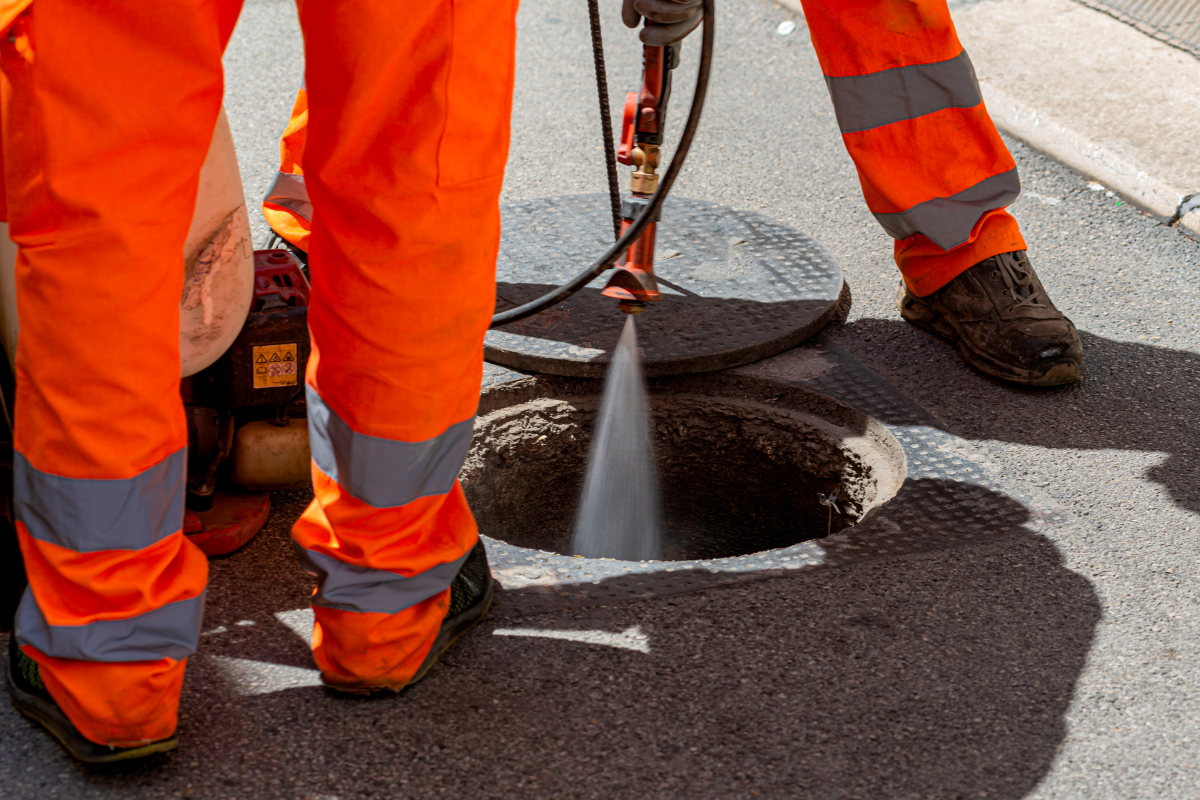
When it comes to maintenance requirements for septic vs sewer systems, understanding the work involved is crucial for homeowners. Let’s break it down into a list for better clarity:
Septic Systems:
- Regular pumping every 3-5 years to remove solids.
- Inspecting the tank for leaks or damage annually.
- Using septic-safe products to maintain the system’s health.
Sewer Systems:
- Periodic inspections by professionals to check for blockages or leaks.
- Flushing the system with enzymatic cleaners to prevent clogs.
- Avoiding flushing non-biodegradable items down drains.
Knowing these maintenance requirements can help you make informed decisions about septic vs sewer systems for your property. Regular upkeep is key to ensuring the smooth operation and longevity of either system.
Installation Process: Ease And Challenges Of Setting Up Each System
When it comes to the installation process of septic vs sewer systems, understanding the ease and challenges of setting up each system is crucial. Let’s break it down into a detailed comparison:
Septic System Installation
– Ease: Suitable for areas without access to a municipal sewer line.
– Challenges: Requires regular maintenance such as pumping every 3-5 years.
Sewer System Installation
– Ease: Connected to a city’s main sewer line, eliminating the need for individual maintenance.
– Challenges: Initial installation can be costly due to connection fees and permits.
Comparison
– Ease: Sewer systems are easier to install in urban areas with existing infrastructure.
– Challenges: Septic systems are more challenging in terms of long-term maintenance and potential environmental impact.
The installation process of septic vs sewer systems presents unique challenges and considerations. While each system comes with its own set of complexities, understanding these aspects is crucial for a successful setup that meets your specific needs and requirements.
Suitability For Rural Areas: Advantages And Disadvantages
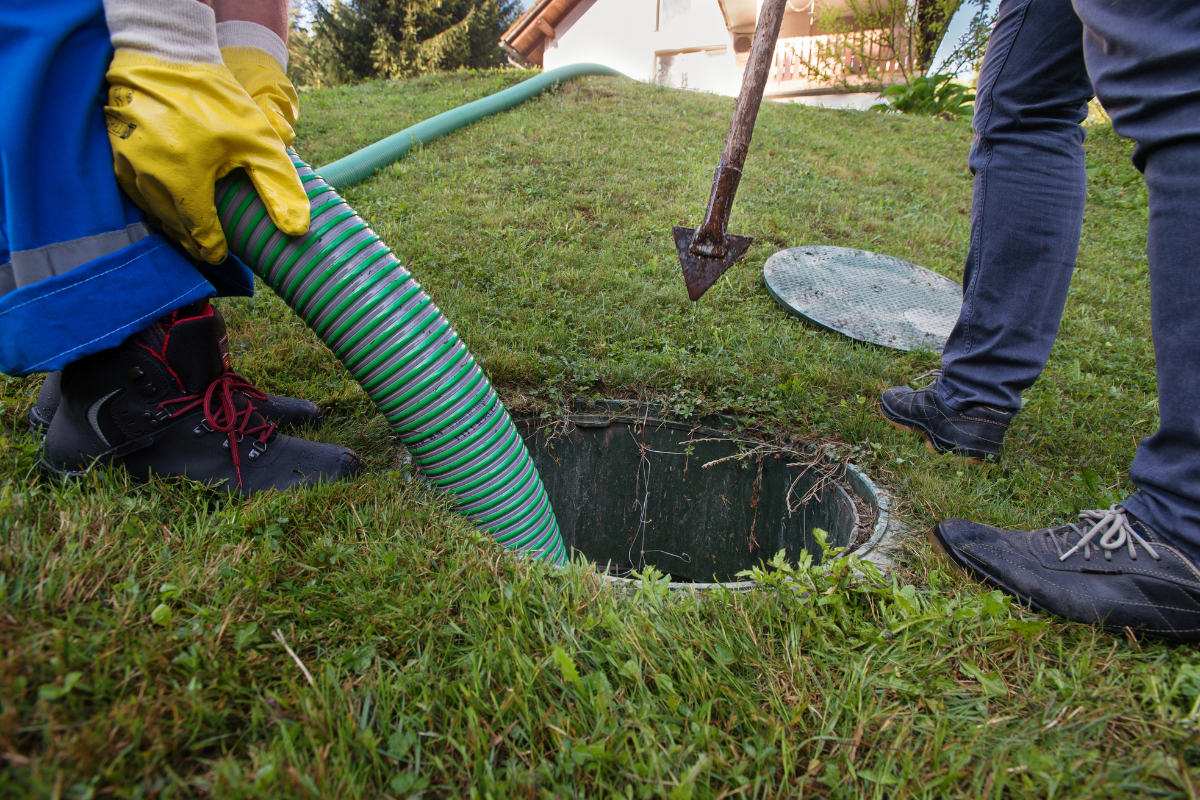
Delve into the suitability of septic vs sewer systems for rural areas as we explore the advantages and disadvantages of each. Discover which system aligns best with the unique requirements of rural properties.
Advantages of Septic Systems:
- Cost-Effective: Septic systems are generally more affordable to install in rural areas compared to connecting to a sewer system.
- Independence: Residents have more control over their wastewater management with septic tanks, suitable for remote rural locations.
- Low Maintenance: Requires minimal maintenance once installed, reducing long-term costs for homeowners.
- Eco-Friendly: Septic systems can be environmentally friendly when well-maintained, as they rely on natural processes for wastewater treatment.
Disadvantages of Septic Systems:
- Maintenance Responsibility: Homeowners are responsible for upkeep and potential repairs, which can be costly.
- Limited Capacity: Septic tanks have a finite capacity and may need regular pumping, posing inconvenience in large households.
Advantages of Sewer Systems:
- Convenience: Sewer systems offer hassle-free wastewater disposal without homeowners worrying about maintenance.
- Increased Property Value: Properties connected to sewer systems tend to have higher resale values in rural areas.
Disadvantages of Sewer Systems:
- Limited Availability: Sewer systems may not be accessible in remote rural areas due to infrastructure limitations.
- Higher Costs: Connecting to a sewer system can be expensive initially, including ongoing service fees.
When considering the suitability of waste management systems in rural areas, it is crucial to weigh the advantages and disadvantages of septic vs sewer systems. By understanding their distinct features, rural property owners can make informed choices that align with their specific needs and circumstances.
Health And Safety Considerations: Risks Associated With Each System
Dive into the realm of health and safety considerations as we explore the risks associated with septic vs sewer systems. Uncover the distinct factors that impact the well-being of residents and the surrounding environment.
Septic Systems:
- Risk of Contamination: Septic systems can leak or overflow, leading to the contamination of groundwater and nearby water sources.
- Health Hazards: Exposure to untreated sewage from a malfunctioning septic system can pose serious health risks due to pathogens.
- Structural Risks: A failing septic system can cause ground collapse or sinkholes, posing a physical danger.
Sewer Systems:
- Environmental Risks: Sewer systems can experience overflows during heavy rain, causing untreated sewage to spill into water bodies and endanger aquatic life.
- Health Concerns: Sewer systems can release harmful gases like methane, hydrogen sulfide, and ammonia, which can be detrimental to human health.
- Infrastructure Risks: Aging sewer systems are prone to leaks and breaks, leading to costly repairs and potential hazards for workers.
When it comes to health and safety, understanding the risks associated with septic vs sewer systems is vital. By evaluating these factors, homeowners can take appropriate measures to ensure the well-being of their households and maintain a safe environment for everyone.
Regulations And Compliance: Navigating Legal Requirements
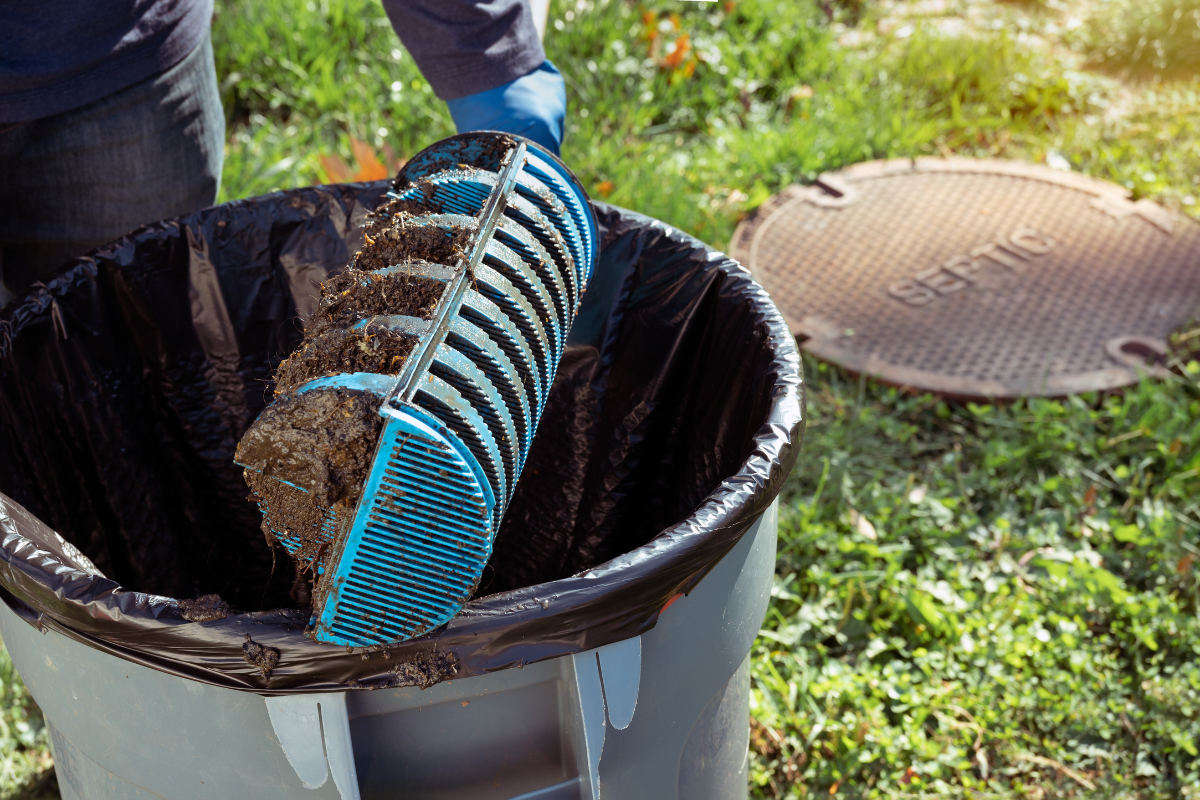
Navigate the complex world of regulations and compliance as we delve into the legal requirements surrounding septic vs sewer systems. Gain valuable insights into the necessary steps for ensuring adherence to local laws and regulations.
- Understanding Regulations: When comparing septic vs sewer systems, it’s crucial to navigate legal requirements. Regulations dictate the installation, maintenance, and operation of these systems.
- Environmental Compliance: Septic systems must comply with environmental standards to prevent pollution. Sewer systems, on the other hand, are regulated to ensure proper wastewater treatment.
- Permitting Process: Before installing a septic or sewer system, homeowners must obtain permits. Regulations outline the permitting process for both systems to ensure compliance.
- Inspection Requirements: Regular inspections are necessary for septic systems to check for leaks or blockages. Sewer systems also require inspections to maintain functionality and compliance with regulations.
- Upgrading Considerations: When upgrading existing systems, homeowners must adhere to regulations for both septic and sewer systems. Compliance with regulations is essential to avoid fines or penalties.
- Legal Documentation: Proper documentation is necessary for both septic and sewer systems to prove compliance with regulations. Keeping records of maintenance and repairs is crucial for regulatory purposes.
Navigating the legal requirements in relation to septic vs sewer systems is essential for homeowners. By understanding and complying with regulations, property owners can ensure the proper functioning of their systems while avoiding potential legal issues.
Odor And Aesthetic Factors: Managing Smells And Visual Impacts
Explore the realm of odor and aesthetic factors as we delve into the management of smells and visual impacts associated with septic vs sewer systems. Discover the strategies to mitigate these concerns effectively.
- Odor Control: Both septic and sewer systems can produce unpleasant smells due to the breakdown of waste materials. To manage odors, septic systems require regular maintenance like pumping and proper chemical treatments, while sewer systems are designed to channel waste to treatment plants quickly, minimizing odors.
- Visual Impact: Septic systems are typically buried underground, minimizing their visual impact on the property. However, sewer systems, with their network of pipes and manholes, can be more visually prominent. Landscaping and proper maintenance can help disguise sewer system components and improve aesthetics.
- Environmental Considerations: When comparing septic vs sewer systems, it’s essential to consider their environmental impacts. Septic systems can leach harmful contaminants into the soil if not properly maintained, affecting groundwater quality. On the other hand, sewer systems are centrally managed and treat wastewater before releasing it back into the environment, reducing the risk of pollution.
- Cost Factors: Maintenance and repairs for septic systems are the responsibility of the property owner, while sewer systems are typically maintained by local authorities. Understanding the cost implications of each system is crucial for making an informed decision based on long-term financial commitments.
Managing odor and aesthetic factors is crucial when it comes to septic vs sewer systems. By employing effective strategies and maintenance practices, homeowners can ensure a pleasant environment while minimizing visual impacts, enhancing the overall experience of their properties.
Behind The Pipes: Exploring The Clash Of Septic vs Sewer Systems
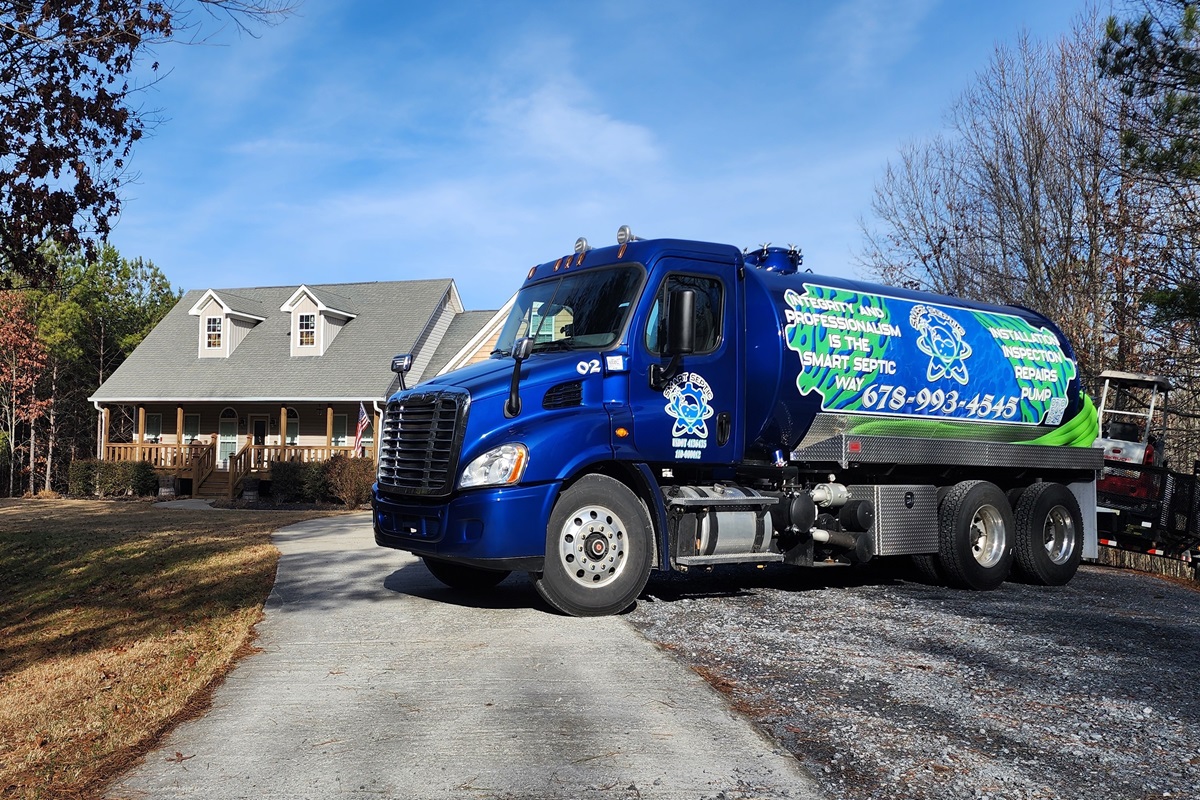
Don’t let septic tank troubles drain your peace of mind! Contact Smart Septic Pros and experience top-notch services for septic tank installation, maintenance, and repair. Our team of experts is equipped with the knowledge and expertise to handle all your septic needs swiftly and efficiently.
With our commitment to quality and customer satisfaction, you can trust us to keep your septic system running smoothly and flawlessly. Say goodbye to septic headaches and hello to a worry-free future. Reach out to us and let us take care of your septic tank with excellence you can rely on!
What are you waiting for? Send your septic service request now!
